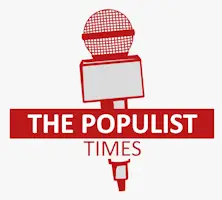France faces political gridlock as recent snap parliamentary elections fail to produce a clear majority, forcing President Macron to call for cross-party cooperation.
At a glance:
- Left-wing New Popular Front coalition wins largest bloc with 180-188 seats
- Macron’s Ensemble alliance secures 150-161 seats, National Rally follows with 142-143
- President calls for “governing pact” to address political impasse
- NFP’s radical economic proposals face financial and legal challenges
President Emmanuel Macron has broken his post-election silence to address the fractured political landscape resulting from France’s recent snap parliamentary elections. With no party securing an outright majority, Macron has called for a “governing pact” to navigate the country’s political impasse.
Shifting Power Dynamics
The left-wing New Popular Front (NFP) coalition, led by Jean-Luc Mélenchon, emerged as the largest bloc with 180-188 seats. Macron’s Ensemble alliance trailed with 150-161 seats, while the populist National Rally secured 142-143 seats. This outcome has dramatically altered the balance of power in French politics.
In an open letter to the public, Macron emphasized that “no one won” the election outright and urged parties to engage in dialogue to build a “solid majority.” The president stressed the need for a pluralistic approach while advocating for a centrist, pro-business agenda.
Left-Wing Challenge to Macron’s Vision
The NFP, a coalition of far-left, communist, socialist, and green parties, has presented a radical platform that starkly contrasts with Macron’s policies. Their proposals include raising the minimum wage, lowering the retirement age, and introducing a 90% tax on high earners. The alliance argues these measures are necessary to address income inequality and combat climate change.
However, the NFP’s agenda faces significant hurdles. Government estimates suggest implementing their program could cost between €100 billion to €287 billion annually, raising concerns among fiscal conservatives. Finance Minister Bruno Le Maire has warned that such policies could trigger a financial crisis and undo years of efforts to stabilize France’s finances.
Legal and Political Obstacles
Experts have pointed out that some NFP proposals may violate French constitutional law or conflict with European Union regulations. The proposed 90% tax rate on high earners might be ruled unconstitutional, while plans to bypass EU fiscal rules could put France at odds with its European partners.
Macron appears reluctant to form a power-sharing government with the NFP, given their conflicting economic visions. Some in Macron’s camp have suggested exploring an alliance with the conservative Les Républicains instead, a move that has sparked internal divisions within the president’s alliance.
As France grapples with this unprecedented political landscape, the coming weeks will be crucial in determining the country’s governance and policy direction for the years ahead.


